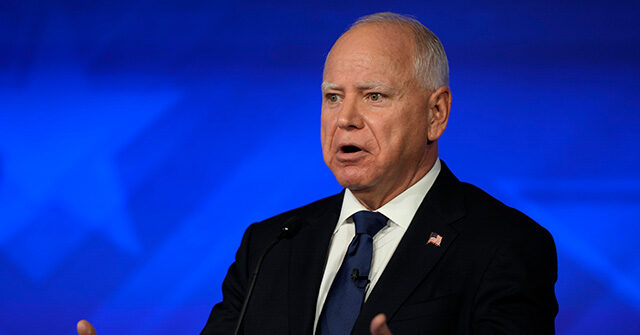In a recent interview with CBS News’s 60 Minutes, Tim Walz, the Democrat vice-presidential nominee, addressed concerns over his frequent misstatements, asserting that his “misspeaking” should not be significant since he has the support of his constituents in Minnesota. When confronted about a false claim he made regarding his presence during the Tiananmen Square Massacre, Walz insisted that people differentiate between emotional storytelling and the deceitful behavior of others, notably referencing Donald Trump. He expressed confidence that Minnesotans were well aware of his character and would not judge him harshly for occasional errors. Walz’s attempt to dismiss his inaccuracies as minor slips rather than lies highlights his reliance on personal connections with the community and an undercurrent of populism in his political approach.
During a debate with Republican presidential nominee Sen. JD Vance, Walz reiterated his feelings about being misrepresented. He emphasized his longstanding commitment to his community and acknowledged his flaws, calling himself a “knucklehead” at times. Walz attempted to reassure voters of his integrity, stating that despite his imperfections, he has consistently aimed to serve the best interests of Minnesotans throughout his twelve years in Congress. However, his narrative of community support appears to be challenged by polling data; a 2022 AP VoteCast poll revealed that only approximately half of Minnesotans have a favorable view of him, raising questions about the strength of his political standing.
Further, The New York Times reported that widespread skepticism regarding Walz’s leadership exists among some Minnesotans. Individuals like Dan Radant, who openly criticized Walz using derogatory signage, reflected a broader sentiment of discontent, attributing state issues such as high taxes and immigration policies to the influence of liberal governance under Walz. This local backlash indicates that while some constituents remain loyal, others view him as a polarizing figure whose governance has not met their expectations, potentially benefiting Republican opponents in the process.
Walz’s credibility is complicated by various claims he has made about his background, including false assertions regarding his military service and personal life. His past fabrications—including claims about carrying a weapon in war and being the highest-ranking veteran in Congress—have sparked criticism, particularly from veterans who served alongside him. Notably, retired Army Command Sergeant Major Tom Behrends and fellow veterans have created public demonstrations against Walz, culminating in strong opposition to his political campaign.
The repeated context of Walz’s alleged lies and misrepresentations raises significant concerns about his accountability as a candidate. Despite his insistence on “misspeaking,” his campaign narrative does not fully address the implications of his fabrications. The absence of acknowledgment over the severity of his repeated inaccuracies presents a fragile facade of trustworthiness. Walz’s defenders may argue that his emotional appeals and community ties should take precedence over his fabrications, yet it is clear that for many voters, character and integrity matter deeply in political leadership.
In essence, the discourse surrounding Tim Walz encapsulates a larger narrative of the current political landscape, where issues of honesty and authenticity resonate powerfully with the electorate. While Walz attempts to navigate criticism by relying on his elected history and personal connections, the growing chorus of doubt among constituents—including veterans and politically active members of his state—suggests that his path to securing broader support may be fraught with challenges. Ultimately, the evolving perception of Walz could influence not just his campaign for vice president, but also the political dynamics within Minnesota as voters grapple with their expectations of leadership.

